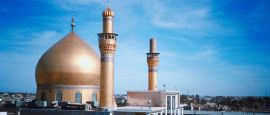Iraq History, Language and Culture
History of Iraq
Mesopotamia – the core of modern Iraq – was at the heart of the Sumerian, Babylonian and Assyrian empires between the 7th century BC and 100 AD. After brief spells under the rule of the Romans and the Sassanids, Iraq was subject to the Arab conquest in 633 AD.
Later, the Arab Caliphate took control of the territory during the late 12th and early 13th centuries before being dislodged by the Mongols. At the end of the 14th century, Iraq was conquered and subsumed into the empire ruled by Timur (also known as Tamerlane). The Turks were the next imperial invaders, ruling from the early 16th century until the collapse of the Ottoman Empire.
In 1920, Iraq was placed under a League of Nations mandate administered by the UK, whose forces had occupied most of the country. The country achieved independence in 1932, but British forces intervened once again in 1941 to combat a pro-Nazi coup.
In 1958, the ruling Hashemite Dynasty was overthrown by a group of radical army officers inspired by the example of Gamal Abdel Nasser in Egypt, and led by Brigadier Abdul al-Karim Kassem. The new regime failed to consolidate its position, however, and relied on a precarious coalition of forces, which quickly disintegrated. Kassem was killed in 1963 during another coup.
In 1968, Iraq's final coup in recent history brought to power the Ba'ath Party. In 1979, after a power struggle within the Ba'ath Party, Vice President Saddam Hussein took over as president and party leader. Saddam's main objectives were to establish his country as the undisputed leader of the Arab world and to overcome the Arabs' two principal enemies in the Middle East: Iran and Israel. With Iran in chaos, he launched a full-scale invasion in 1980. The Iraqis failed to win and the fighting went on until 1988.
The Iraqi economy was crippled by the war and had incurred an enormous foreign debt, much of which was owed to neighbouring Kuwait; a dispute over oil reserves provided the pretext for the Iraqi invasion of Kuwait in 1990. This led to the Gulf War, after which no-fly zones were established by the US and UK. In 2003, a US-led coalition went to war again in Iraq and, finally ousted Saddam Hussein.
Since then, Iraq has struggled to rebuild its economy, as well as a workable democracy. After the eventual departure of US troops in 2011, Iraq became embroiled in Syria's civil war, and the radical-Islamist Daesh has seized huge swathes of the country. The fighting shows little sign of letting up.
Did you know?
• Iraq in Arabic means ‘the fertile’.
• Noak’s ark is believed to have been built in modern-day Iraq.
• The traditional music of Iraq, maqam, is based on Arabic poetry.
Iraq Culture
Islam. Muslims make up 95% of the population, with considerably more Shiites than Sunni. Others are Christians who belong to various sects, including Chaldeans, Assyrians, Syrian and Roman Catholics, Orthodox Armenians and Jacobites. Other religious minorities are the Yezidis and the Sabaeans, or Mandeans, who are followers of John the Baptist.
Language in Iraq
80% Arabic (official). Other languages spoken include Kurdish, Persian, Chaldean, Assyrian and Armenian. English is quite widely spoken in urban centres.
In the northern region known as Iraqi Kurdistan, many people, especially younger Kurds, will speak only Kurdish with no Arabic. Although, English is widely spoken in towns.




 You know where
You know where